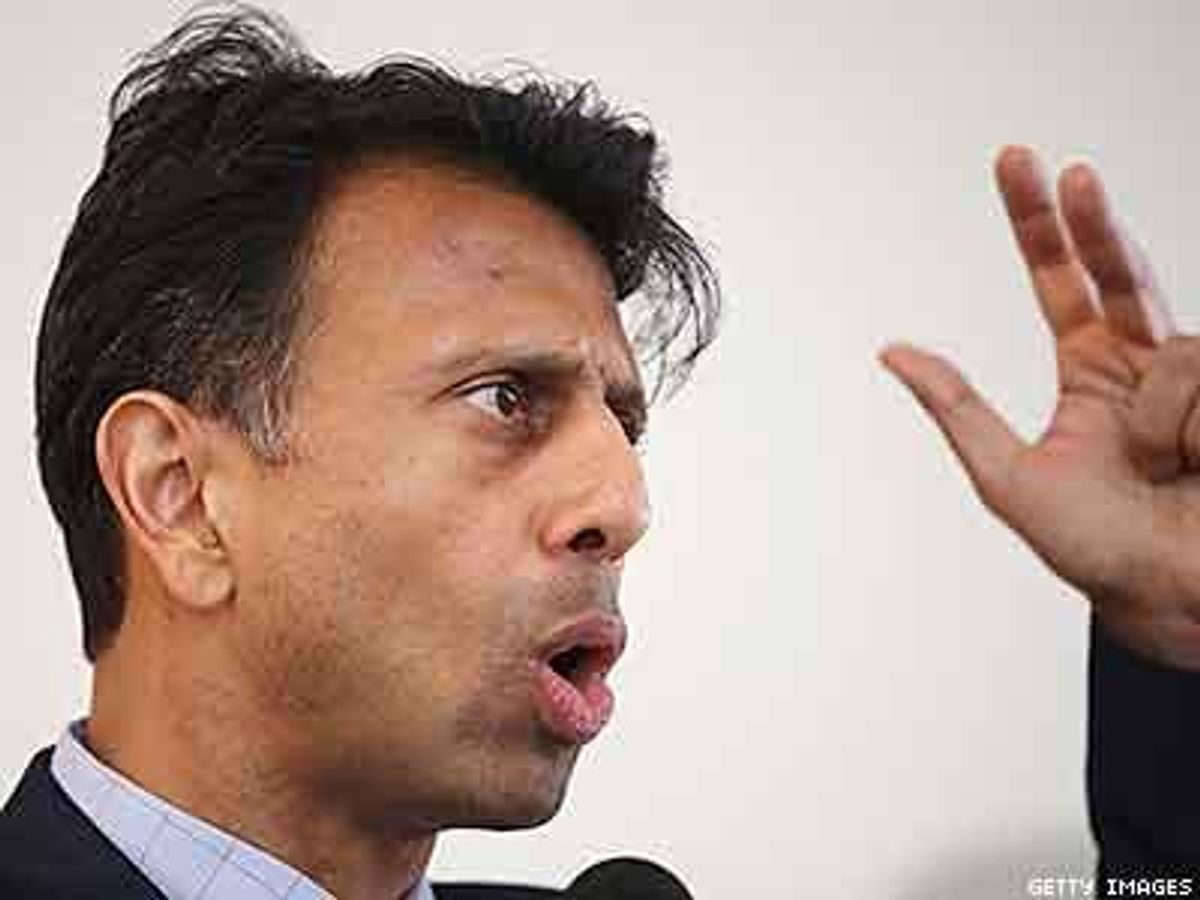Louisiana's antigay "religious freedom" bill has died in a state House committee, but Gov. Bobby Jindal says he'll issue an executive order to accomplish the bill's goals.
The House Civil Law and Procedure Committee voted 10-2 today to table the so-called Marriage and Conscience Act, "which in most cases signals that legislation has been indefinitely shelved," reports The Times-Picayune, a New Orleans newspaper. The bill would have prevented the state from penalizing a business because the operator expressed religious or moral objections to same-sex marriage -- for instance, in refusing to provide goods or services for a same-sex wedding.
Shortly after the vote, Jindal issued a statement saying he'll make the bill's provisions law via executive order, the paper reports.
"We are disappointed by the committee's action to return the Louisiana Marriage and Conscience Act to the calendar," the statement reads. "We will be issuing an Executive Order shortly that will accomplish the intent of HB 707 to prevent the state from discriminating against persons or entities with deeply held religious beliefs that marriage is between one man and one woman.
"This Executive Order will prohibit the state from denying or revoking a tax exemption, tax deduction, contract, cooperative agreement, loan, professional license, certification, accreditation, or employment on the basis the person acts in accordance with a religious belief that marriage is between one man and one woman."
It is worth noting that as with most executive orders, a future governor could rescind Jindal's order, should he enact it.
Indiana and Arkansas saw backlash when they passed similar bills, and legislators made changes aimed at addressing concerns that the laws would provide a "license to discriminate" against same-sex couples and LGBT people generally. But activists consider the changes inadequate, as neither state bans discrimination based on sexual orientation or gender identity (nor does Louisiana). Mississippi enacted a similar law last year, Arizona's governor vetoed one, and several states have seen them proposed as marriage equality has spread.
The stalled legislation, and presumably any executive order from Jindal, however, is a more pointed response to the advance of marriage equality nationwide, as the language in the bill specifically sought to "protect" those citizens whose faith prompts them to oppose same-sex marriage. Other legislation, including that in Arkansas and Indiana, tip-toed around the issue, without ever mentioning marriage or LGBT people directly. But the unabashedly antigay nature of the Louisiana bill led the Human Rights Campaign to label it "even worse" than the Indiana law that passed in March and was subsequently amended.
Marriage equality has yet to come to Louisiana, one of the few states whose ban on same-sex marriage has been upheld by a federal court. A case involving marriage bans in four other states was heard by the U.S. Supreme Court last month, and the court's ruling, expected in June, could result in nationwide marriage equality.
Jindal, a Republican with presidential aspirations -- although he has not officially declared his candidacy -- is a staunch opponent of marriage equality and LGBT equality overall; he has voiced support for amending the U.S. Constitution to ban same-sex marriage. This week he released an ad touting his views on "religious freedom" for broadcast in Iowa, which holds the nation's earliest caucus on presidential candidates.












































































